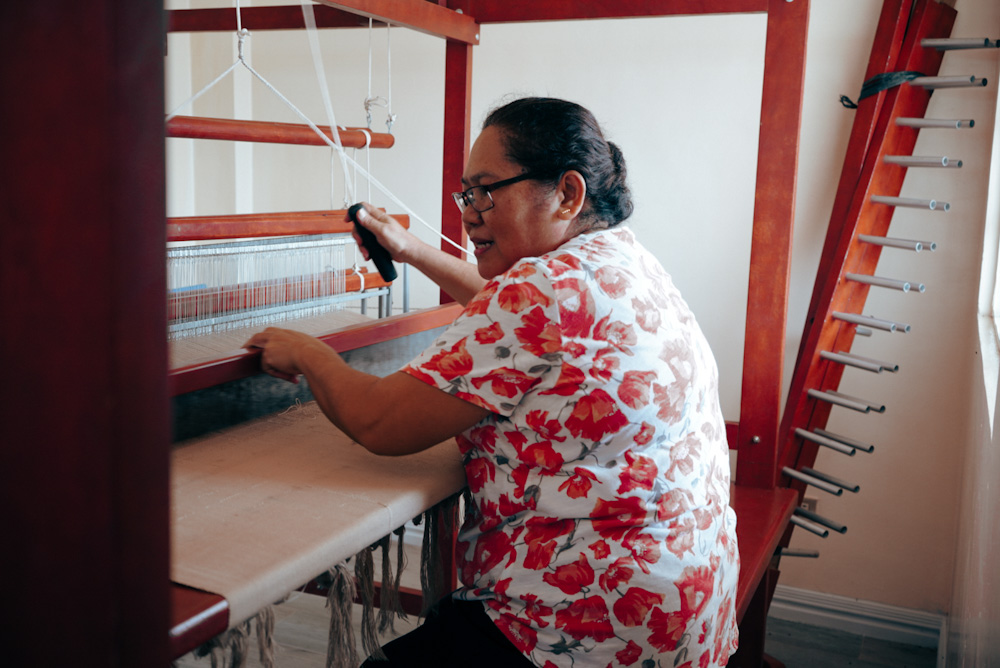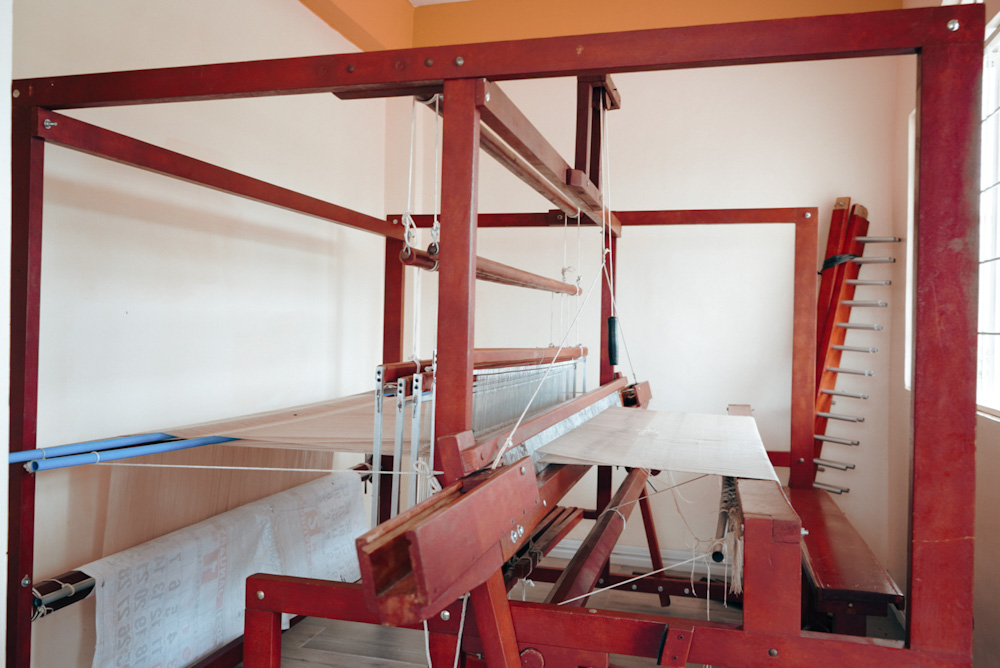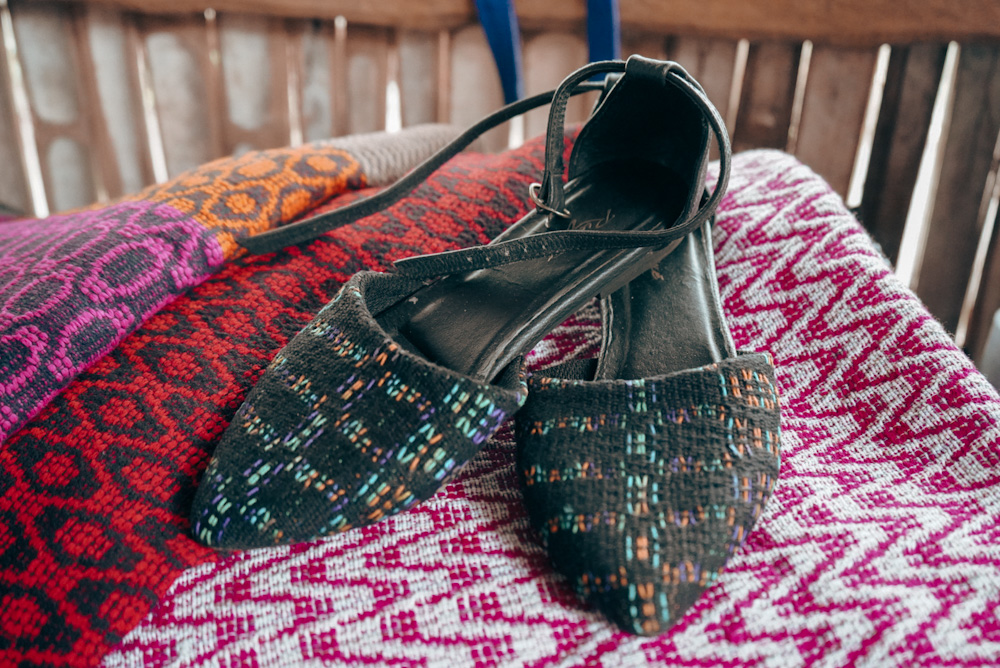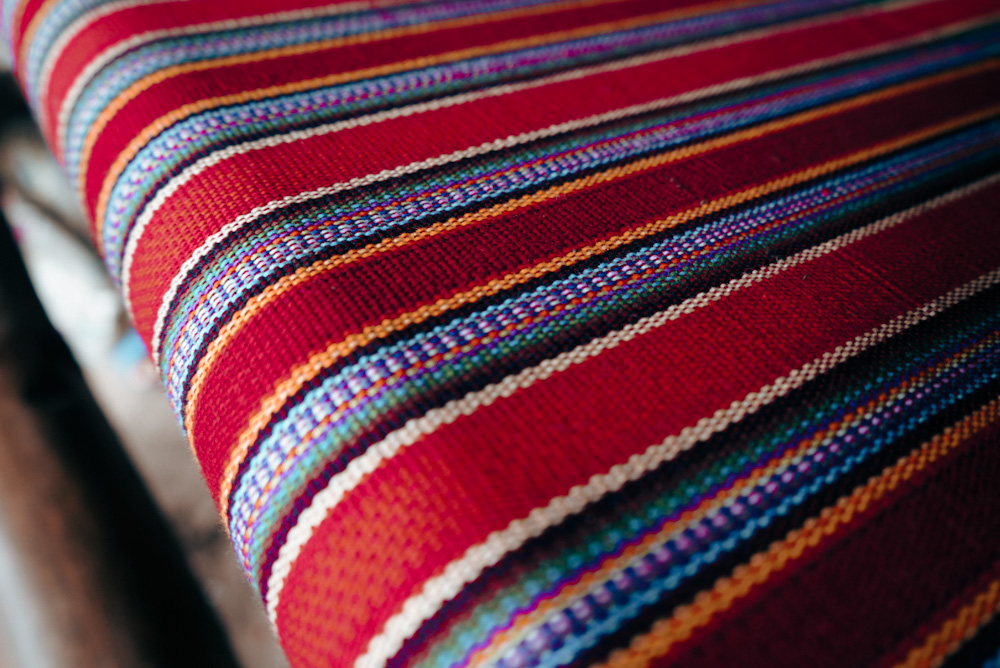Last week, I got to visit another Filipino weaving community. They are the weavers of Buhi in Camarines, Sur, of which very little is heard from in Manila. They are one of the beneficiaries of the recent “Marketing Enhancement Sustainable Community-Based Tourism Workshop” by the Tourism Promotions Board (TPB). Read on to know more about this little weaving community in Bicol.

Table of Contents
Weaving in the Philippines
The Philippines has a vibrant weaving tradition; from “Inabel” of Ilocano in Northern Luzon to the “T’nalak” of T’boli in Mindanao. In the modern age, the Filipino weaving traditions struggle to survive as local retail brands depended on low cost cottons and fabrics which were mass-produced in China or Vietnam.
In recent years, there have been numerous efforts to revive the weaving industry in the Philippines. The emergence of interest and demand of the public for handwoven textiles encouraged weavers to continue their age-old craft. This resulted to more Filipino designers that integrates weaving in their designs as well.

Three years ago, I was ignorant to the cultural importance of our indigenous peoples weaving traditions. However, when I got the opportunity to visit the weaving communities of Blaan and T’boli in Mindanao, I developed an appreciation for their craft. I promised to be more mindful and more sustainable. As much as I could, I shop directly from the source so that most of the profits go to the artisans who make them.

History of Handloom Weaving in Buhi, Camarines Sur
In the lakeside municipality of Buhi in Camarines Sur, the weavers call the product of their handloom weaving as “hinabol.” No one knows exactly how long weaving has been around in Buhi. According to Ms. Clarita Noble of BOKPA (Buhi One-town, One Product Key Players Association), they consider weaving as a way of life. It’s a craft passed on generation to generation.

Historically, the weavers of Buhi used abaca fiber as raw material to produce clothing, which was then Baro’t Saya and Kamisa de Chino. In the 70’s, the concept of upcycling has been practiced by the weavers of Buhi. Instead of using new materials, they used cotton thread from scrap t-shirt collars from factories in Manila. Since then, their traditional handloom weaving reached many parts of Bicol, Visayas and as far as Mindanao. Unfortunately, their popularity declined in the 90’s due to presence of shopping malls, which introduced people to other clothing alternatives.


Keeping the Industry Alive
Aside from farming and fishing, weaving is another source of livelihood for families in Buhi, Camarines Sur. The women took care of the family while they do handloom weaving between household chores. It’s also not uncommon to see an entire family that can weave, as extra hands means extra money for the family. On our visit to the community, we’ve seen a family where the mother and father do weaving full-time.

According to Ms. Clarita Noble, over 70 weavers in Buhi are members of BOKPA. Before the association was established, the weavers work at home independently, from sourcing of raw materials, weaving, packaging and selling. When they joined BOKPA, the weavers got assistance not only with materials to produce the weaves but also with marketing the finished products outside town.

What we can do to support the Weavers of Buhi
The weavers of Buhi need as much support and appreciation as we can give them. Although there have been programs from the private sector and government agencies, we as individual buyers, can make a difference. If you are interested in local crafts and artisan clothing, then you can check out MaArte and Artefino, two of the most popular fairs in the metro that showcase Filipino craftmanship.

If you have an opportunity to visit Camarines Sur, you can purchase the textiles directly from the weavers. You may get in touch with Ms. Clarita Noble of BOKPA through her personal Facebook account or her mobile phone (+63)9122009607. You can also purchase from Hataw Handwoven Products, an enterprise engaged in upcycling t-shirt collar thread overruns.

There are other online stores where you can order local weaves and help support weavers who make them. BidiBidi, a social enterprise in Baao, Camarines Sur, helps local weavers by providing them training and helping them connect with consumers. I highly recommend this enterprise because they produce unique sustainable bags, accessories and clothing with the use of locally-sourced materials like Hinabol from weavers of Buhi.
Do you like features like this? Do you want to know more about the weaving communities in the Philippines? Let’s chat down below!

3 replies on “Weavers of Buhi, Camarines Sur”
Hi! where can we order hinabol fabrics?
Hello! You may get in touch directly with Ms. Clarita Noble of BOKPA through her personal Facebook account or her mobile phone (+63)9122009607.